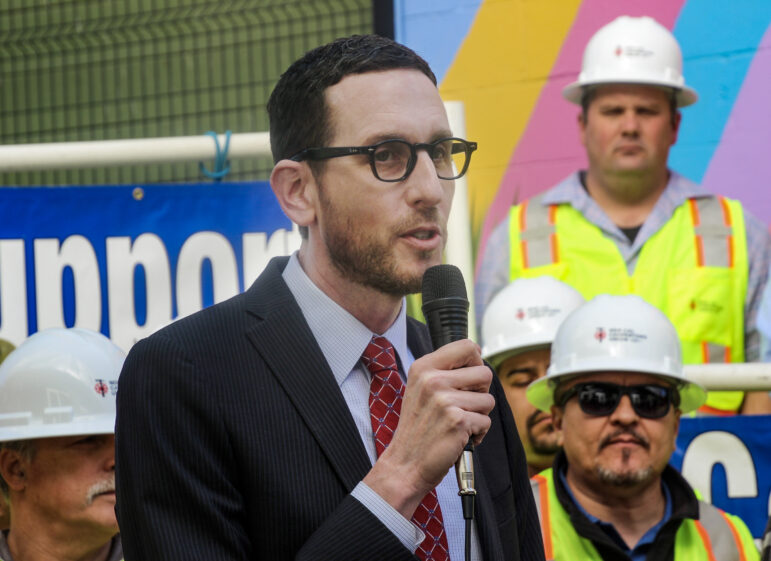Public transportation advocates and Bay Area lawmakers like State Sen. Scott Wiener, D-San Francisco, are pushing for a new bridge toll increase to bolster public transportation funding and prevent drastic service cuts.
Introduced on Monday, Senate Bill 532 would impose a temporary toll increase of $1.50 on seven Bay Area bridges for five years, starting in 2024. The toll increase would generate an additional $180 million a year over the five-year period to improve Bay Area public transportation services like BART and SF Muni, said proponents.
“Having strong public transit systems is vital to our economy, our equity goals and our ability to effectively respond to the climate crisis,” said Jeff Tumlin, San Francisco Municipal Transportation Agency director of transportation.
The Metropolitan Transportation Commission, which oversees transportation for the region, would be responsible for directing funds to appropriate agencies. At least 90 percent of toll revenues would be used to maintain service at current levels, while up to 10 percent could fund reform initiatives surrounding service restoration and safety improvements, according to the bill legislation.
Wiener said the bill would be “critical lifeline funding” for transit systems as they recover from plummeting ridership numbers post-pandemic and search for funding outside of federal emergency assistance dollars, which will soon dry up.

Earlier in June, the Legislature released a state budget agreement that would allocate $400 million to Bay Area transit agencies over the next three years, which Wiener said is a major step forward to resolving the “fiscal cliff issue.”
But it’s not enough to fully prevent the elimination of bus lines or reductions in weekend and nighttime services, he said.
“We’ve made good progress in this year’s budget, but the future of public transportation in the Bay Area is still under threat due to pandemic-related operational deficits that, without help, will lead to severe service cuts,” said Wiener. “It is up to the Bay Area to engage in financial self-help and fill the remaining hole in our budget,” he said.
Yeon Park, president of the Alameda County Labor Council and vice president of SEIU 1021, added that the budget cuts do not just affect transit schedules, but also transit workers. Park said the bill would also protect the jobs of those who operate and maintain the systems.
“Without an additional revenue stream, BART could be forced to implement irrecoverable service costs and lay off a highly-skill workforce next year,” Park said. “Cuts to the transit workforce will leave capital projects in limbo. New trains cannot be put into service without our skilled technicians.”
The bill isn’t met with unanimous approval, however.
State Sen. Steve Glazer, D-Contra Costa, said he will “vigorously oppose” another bridge toll increase. He said BART first needs to receive more fiscal oversight to ensure that funds will actually improve transit safety and efficiency. He said the last toll increase in 2018 promised to fund a fully operational BART Office of the Inspector General, an independent watchdog office that would investigate fraud and abuse within the agency, only for it to be “starved” of money by the agency’s board of directors.
“Transit riders and taxpayers have witnessed firsthand the trail of broken promises by advocates for bridge toll increases,” Glazer said. “We know from hard-learned experience that new funding does not ensure proper oversight and accountability at BART.”

The bill is sponsored by TransForm, Bay Area-based transportation advocacy group, and is backed by a group of Bay Area lawmakers, including senators Dave Cortese and Josh Becker, and assemblymembers Matt Haney, Phil Ting, Alex Lee, Mia Bonta and Buffy Wicks.
Ting said the funds will buy agencies enough time to continue services until they find a stable source of funding.
Proponents mentioned a potential regional ballot measure that could secure long-term funding for transit agencies that could pop up in 2026.
“While the temporary toll increase would be painful, the alternative is worse. We cannot let our transit agencies cut services if we care about the economy and transportation equity,” Ting said.
